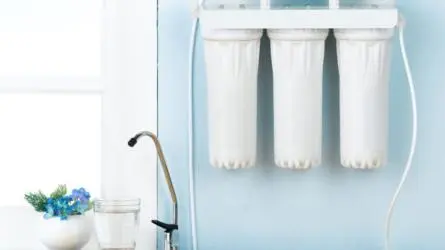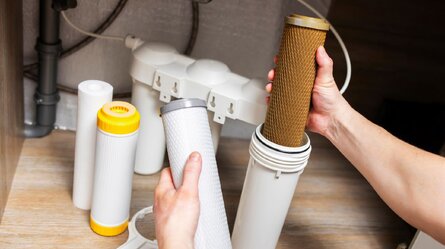Have you noticed that your hot water heater is taking its sweet time to warm up? It might be dealing with a calcium build-up. This pesky problem can reduce efficiency, making your heater guzzle more energy as it struggles to heat water.
Imagine showering in the morning with a dwindling supply of hot water – not ideal! Regularly preventing calcium build-up in your water heater is crucial for maintaining a steady flow of hot water and extending the lifespan of your appliance.
Hard water, containing high calcium and magnesium minerals, contributes to calcium build-up in your water heater tank. These minerals can form deposits around the heating element, reducing its ability to heat water efficiently. Over time, this build-up can also restrict water flow throughout your plumbing system, affecting your shower pressure and the performance of other hot water appliances.
Thankfully, there are ways to prevent calcium build-up in your water heater. Flushing your water heater regularly helps remove existing sediment and mineral deposits. While this can help, a water softener might be the best solution for homes with particularly hard water. Water softeners remove hardness minerals from your water supply, preventing them from building up in your water heater and throughout your plumbing system. This protects your hot water system, helps prevent hard water stains on your fixtures, and reduces appliance wear and tear.
The Trouble with Calcium: Understanding Hard Water
Hard water isn’t kind to your plumbing, and you might be seeing the signs. Are you finding it hard to lather up in the shower or noticing a cloudy film on your dishes? These might be clues to hard water build-up in your water heater.
Hard water contains high levels of dissolved minerals, primarily calcium and magnesium. These minerals are picked up as water travels through rocks and soil to your home. Geographic location plays a big role—areas with limestone or dolomite bedrock are more prone to hard water.
Hard water’s effects aren’t limited to those pesky white rings in your bath. You might find soap doesn’t lather well, or you’re spotting stubborn water marks on your glassware. Your appliances aren’t immune either—hard water can diminish the performance of dishwashers and washing machines, making dishes and clothes less than sparkling.
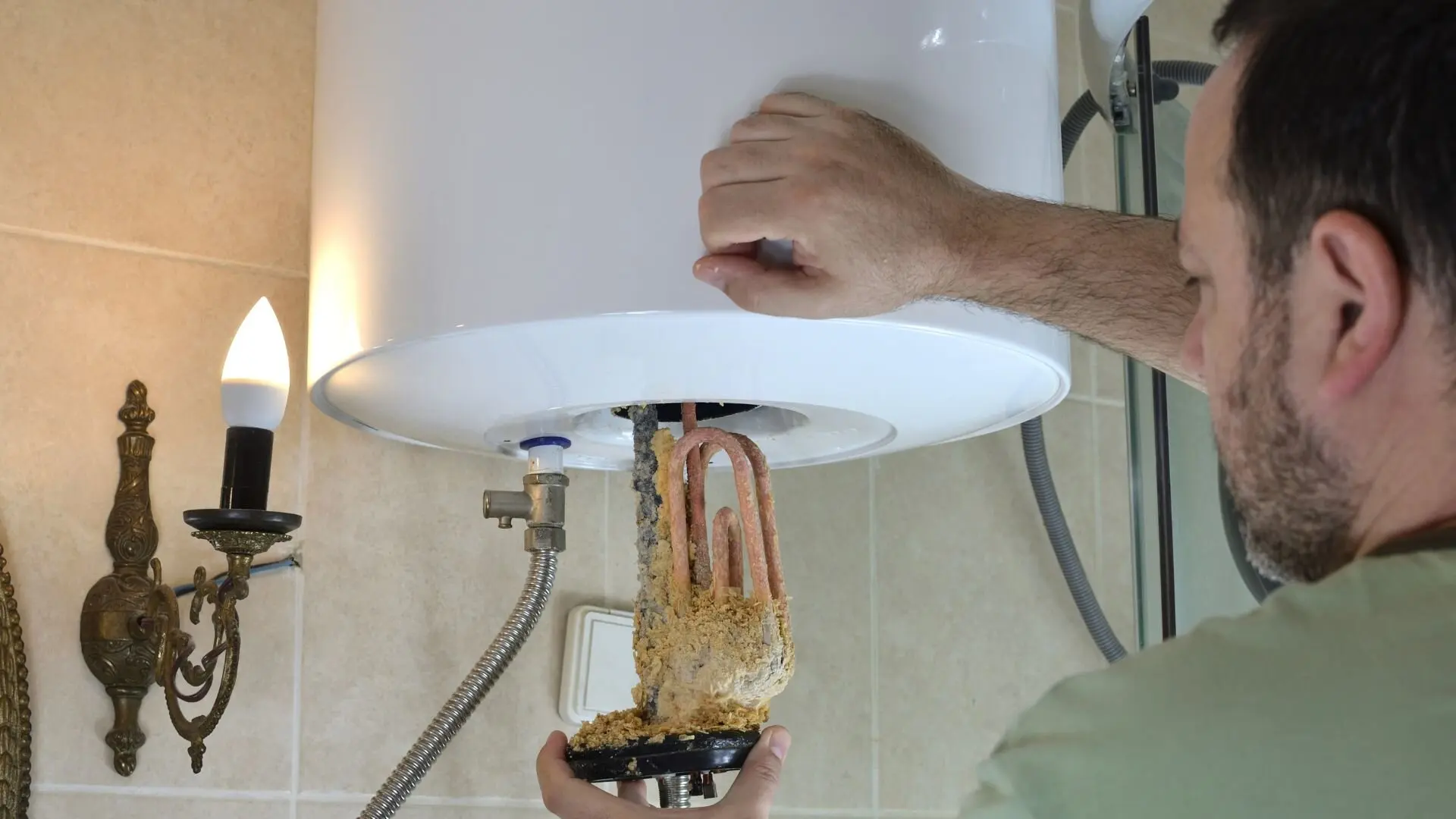
The culprit behind these issues is calcium build-up. Hard water minerals can accumulate inside your water heater tank, forming a scale layer around your water heating element. This not only reduces the efficiency of your water heater, leading to higher energy bills, but can also shorten its lifespan.
Thankfully, there are ways to combat hard water and get rid of hard water build-up. Regularly flushing your water heater tank helps remove existing mineral deposits and prevent further scale build-up. A water-softening system can be a lifesaver in areas with tough water. Water softeners remove the calcium and magnesium minerals before they enter your home, preventing them from building up in your water heater, plumbing system, and household appliances. This keeps your hot water system running smoothly, saves you money on energy bills, and extends the life of your appliances.
Looking to prevent scale build-up in your water heater? Here are some handy tips:
- Flush your tank: Routine flushing of the tank, usually once a year, clears out sediment and helps stop more from forming.
- Mind your water quality: If your area has particularly hard water, investing in a water softener could be a smart move. It filters out hard minerals before they reach your home.
- White vinegar: For those who prefer a natural touch, white vinegar can tackle calcium deposits on faucets and showerheads.
By preventing and removing calcium build-up, you can keep your water heater working efficiently and extend its lifespan.
How It Affects Your Water Heater
Hot water tends to attract calcium. When the temperature in your water heater tank increases, calcium comes out and settles at the bottom, forming a scale. This process happens faster if your water is hard and packed with calcium minerals.
This scale build-up in water heaters significantly threatens their performance and lifespan. Firstly, it acts like an insulator. Normally, the water heating element efficiently transfers heat to the water. However, with a thick layer of scale wrapped around the element, it has to work much harder to maintain the desired temperature. This extra effort translates to higher energy bills for you.
Secondly, calcium build-up reduces the capacity of your water heater tank. Over time, the space where hot water is stored gets smaller due to the accumulating scale. This means you might run out of hot water sooner, especially during peak usage times.
Significant calcium build-up can damage your water heater tank in extreme cases. The intense heat can cause the scale to crack, stressing the tank itself. Unusual noises from your water heater, like knocking or rumbling, could indicate this problem.
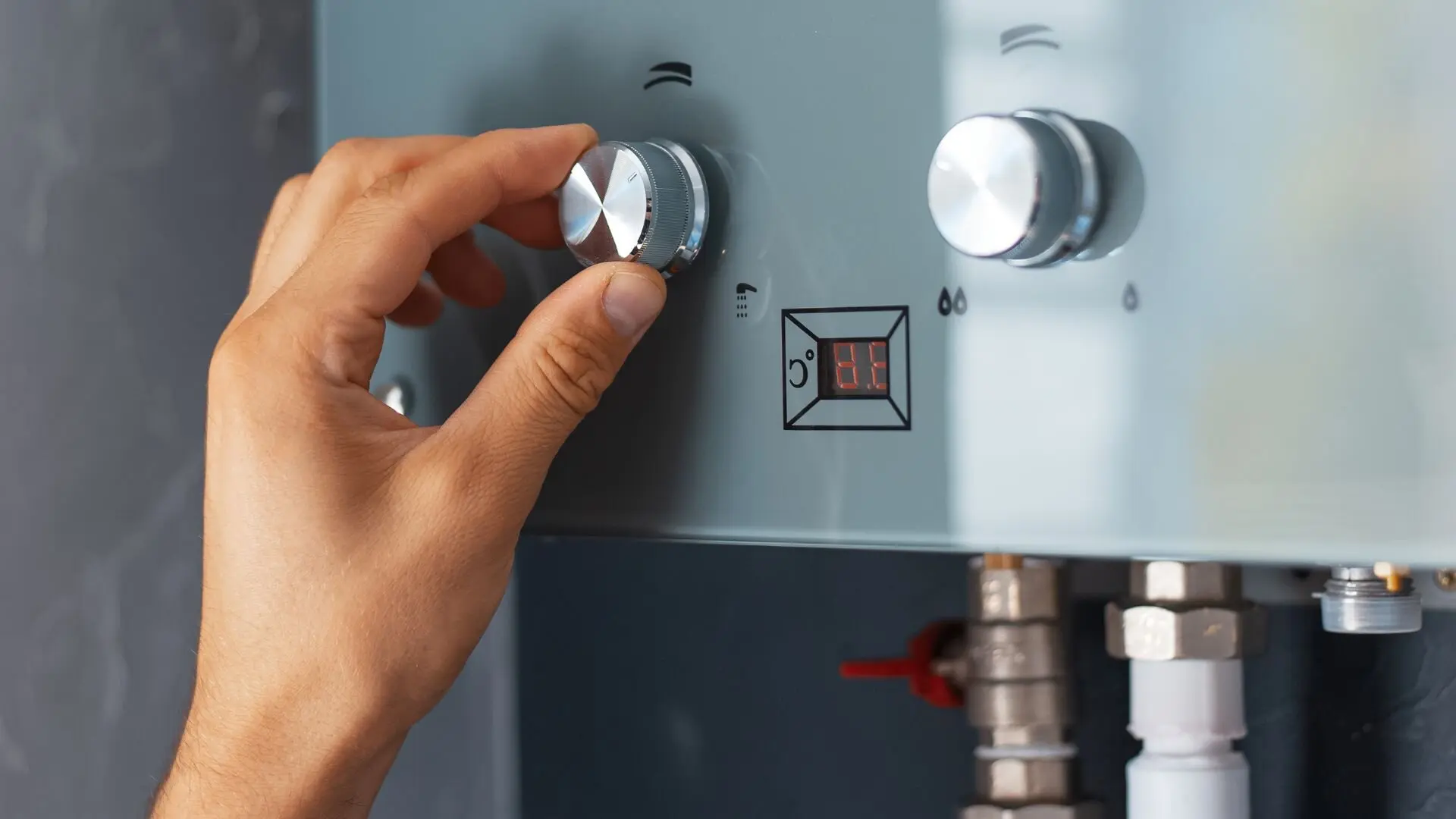
Here’s how to combat the calcium threat and prevent scale build-up in your water heater:
- Regularly flushing your water heater helps remove sediment build-up and prevent further scale accumulation. You can also drain the water from the tank through the drain valve, flushing out any mineral build-up that can collect at the bottom.
- A water softener can be a wise investment if you live in an area with tough water. Water softeners remove the calcium and magnesium minerals before they enter your water heater, preventing them from building up and causing problems.
These steps will ensure a steady supply of hot water, extend the lifespan of your water heaters, and save you money on your energy bills. Additionally, preventing scale build-up throughout your plumbing system protects your faucets, showerheads, and other fixtures from hard water deposits and ensures smooth water flow throughout your home.
Preventive Measures Against Calcium Build-Up
Calcium build-up quietly undermines your water heater’s efficiency and lifespan. But don’t worry; you can tackle it with a two-fold strategy: regular flushing and temperature management.
Giving your water heater a flush is a straightforward way to clear sediment, like calcium deposits, before they start causing issues. First, turn off the water supply and open the pressure relief valve to let out any pressure. Then, attach a hose to the drain valve at the tank’s bottom and lead it to a suitable drain.
Open the valve to let water and sediment flow out. When the tank is empty, shut the valve and turn the water back on. Open a hot water tap to push out any trapped air, then close it once the water flows smoothly.
Flushing your water heater is especially important in areas with hard water containing high levels of calcium minerals. In these regions, aim to flush your water heater twice a year. For softer water areas, annual flushing is generally sufficient. Regular flushing helps prevent future calcium build-up from forming inside your tank, keeping your water heater working efficiently for longer.
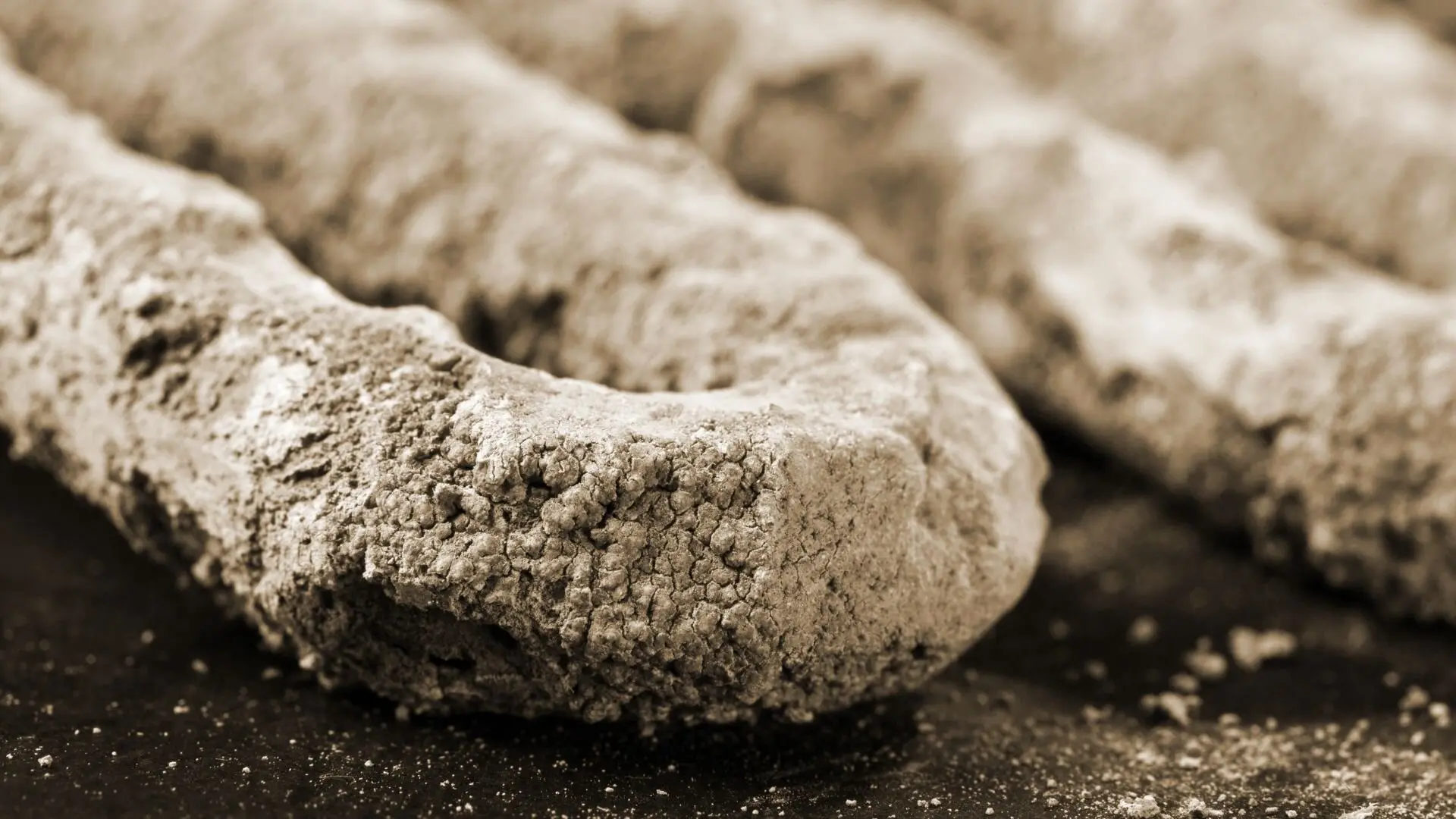
The second weapon in your fight against calcium build-up is water temperature control. Science explains why this works: hotter water acts like a magnet, attracting and causing dissolved calcium to precipitate faster. This means the hotter your water heater is set. The quicker calcium builds up inside your tank.
To combat this, lower the temperature setting on your water heater. The ideal temperature is around 49°C. This helps prevent calcium build-up in your water heater and offers two additional benefits. Firstly, it reduces the risk of scalding, which is especially important in homes with young children or elderly people. Secondly, lowering the water heater temperature can lead to energy cost savings, as your unit won’t have to work as hard to maintain a higher temperature.
Regular flushing and temperature control significantly reduce calcium build-up in your water heater. This ensures a steady supply of hot water, extends the life of your appliance and potentially saves you money on your energy bills.
As mentioned, a water softener can be another line of defence for areas with exceptionally hard water. Water softeners remove the calcium and magnesium minerals before they enter your hot water heater, preventing them from building up and causing problems throughout your plumbing system, from your faucets and showerheads to your cold water supply.
Enjoy a Steady Stream of Hot Water
Don’t let hard water calcium build-up become a silent threat to your hot water heater! Regular flushing and temperature control can significantly reduce this issue, ensuring a steady supply of hot water and extending the life of your appliance.
Woolf Plumbing has extensive experience in water heater maintenance and water softener installation. If you’re unsure how to flush your water heater or are considering a water softener for your home, we can help! Contact Woolf Plumbing today for a consultation or to schedule a hot water service call. Our qualified plumbers can help combat calcium build-up and keep your hot water flowing smoothly.



